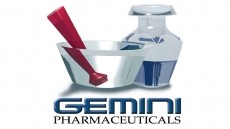Relief for GSK after successful Singapore vitamin test
found to meet their stated claims of high vitamin C content in
Singapore, according to the country's Agri-Food and Veterinary
Authority (AVA).
Goh Shih Yong of the AVA told AP-Foodtechnology.com that the authority had decided to test samples of Ribena sold in the country following concerns over the product's nutritional value. Despite the positive testing, the news continues to highlight concerns over current regulations on nutritional claims following GSK's admittance last month that Ribena in Australia and New Zealand may have far less vitamin C than was being claimed on packaging and in promotional material. It also throws the spotlight on ingredient sourcing, particularly for multi-nationals, who have to rely on a variety of supply chains to meet global demands for their products. As Ribena sold in the country is manufactured separately from the product that is present in Australia and New Zealand, the AVA was keen to establish that consumers in Singapore were not also being misled. The AVA added that Singapore's nutrition labelling was in line with international standards and reiterated that processors needed to act with diligence when making claims over nutritional benefits in their products. "AVA would like to emphasize that food manufacturers have the onus to ensure that the nutrition claims used for their food products are truthful and can be substantiated," said Yong. "It is an offence under the Sale of Food Act to use claims which cannot be substantiated." The findings in Singapore will come as some relief for GSK after it had been forced to implement measures to retract Vitamin C content claims for Ribena sold in Australia and New Zealand. This saw the company agreeing to distribute notices for stores detailing potentially misleading claims, as well as refraining from the use of any future nutritional promotions that cannot be substantiated. It was initially a group of New Zealand schoolchildren, and not GSK's own scientists, who raised the alarm that Ribena in the country was not meeting stated nutritional content. It was revealed last month that testing by two 14 years olds in 2004, found little trace of vitamin C in Ribena products. This was later followed by a recent announcement from GSK itself that Australian Ribena may also not meet its stated claims of being "Rich in vitamin C". Under current guidelines to meet these claims, 200ml of juice and cordials must have at least 15 mg of vitamin C to be substantiated. The GSK case continues to highlight concerns over nutritional claims being used to promote food and beverages and has done little to stem criticism of current guidelines on nutrition labeling. In March's publication of the Food Legal Bulletin, a report called for a rethink on current practices for nutrition claims. In the report, which is written for food lawyers and consultants, lead author Professor Joe Lederman express's concern over the legislation set out by the Australia New Zealand Food Standards Code. Under current requirements, all packaged food sold in the two countries must come with a Nutrition Information Panel (NIP), which can be obtained through one of four information sources. These sources range from laboratory analysis and food composition tables to a nutrition panel calculator on the Australian and New Zealand Food Standards website, though the report is unsure of their true effectiveness. "All such data irrespective of its source would be subject to being an average or mean of data accumulated over many years from many analyses," states the report. "For some inexplicable reason, the law always assumes that this data has been derived from the same named biological source, even though this assumption is a fiction." With nutritional content likely to vary from individual weather conditions and farmers' treatments, the report questions the NIP system's effectiveness in accurately judging a products nutritional value. "Since it is mandatory by law to require that the Nutrition Information Panel accompany all food products on the label of packaged food or be available on request for the buyer of unpackaged food, what is the point of having the law exist at all?" concludes the report.












